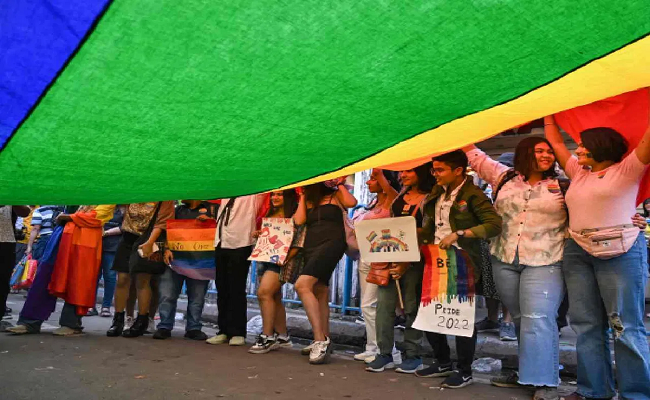South Bengal gets new rail connectivity: Purulia-Bankura-Howrah MEMU service inaugurated today
.gif)
.gif)

India's Supreme Court is currently hearing arguments for and against legalizing same-sex marriage, a contentious issue opposed by both the Centre and Muslim petitioners.
The Centre argued that a debate on the issue should involve the views of the states, and it cannot be decided by just five lawyers on either side and five judges on the bench.
Meanwhile, senior advocate Mukul Rohtagi, representing the same-sex marriage petitioners, emphasized that homosexual couples have the same fundamental rights as heterosexual couples and deserve to fully enjoy them.
The bench comprises Chief Justice DY Chandrachud and Justices Sanjay Kishan Kaul, Ravindra Bhat, Hima Kohli, and PS Narasimha. The petitioners refuted the Centre's argument, stating that same-sex couples have the right to marry and the same fundamental rights as heterosexual couples. They urged the top court to intervene in the matter as there is a violation of the fundamental rights of homosexual couples.
However, Solicitor General Tushar Mehta argued that since the issue is in the concurrent list, and the state is not a party in the matter, the petitions will not be maintainable.
The bench responded that the tenability of Mehta's submission depends on the submissions of the petitioners and that the court must consider the arguments on their merits. The bench further stated that it will hear the central government in due course, and the court cannot preempt the submissions of the petitioners.
On Monday, the Centre claimed that pleas seeking legal recognition of same-sex marriages represent only an urban elitist view for the purpose of social acceptance. The central government further stated that change cannot be compelled by judicial fiat, and the best judge of the pace of change is the Legislature itself.
The Centre argued that the Legislature is duty-bound to act according to the popular will in matters of personal laws, and Parliament is presumed to know what is in the best interest of the people, especially in cases of personal law.